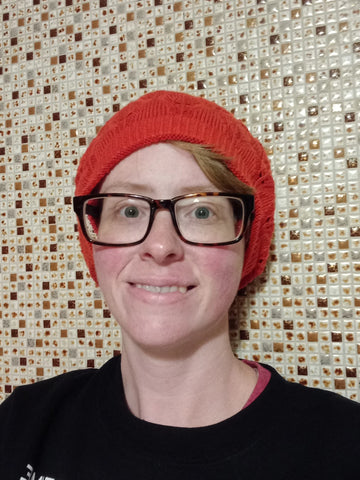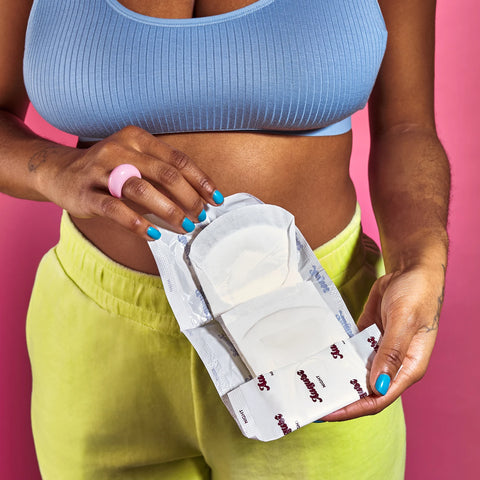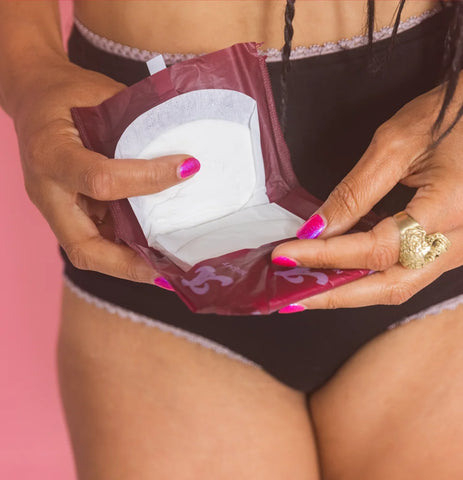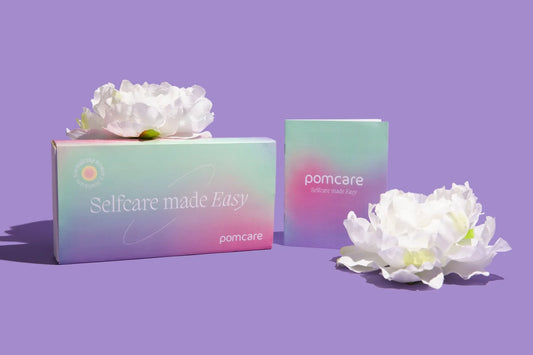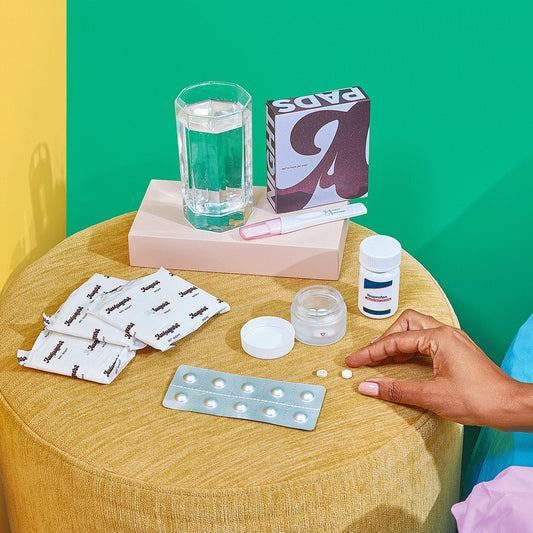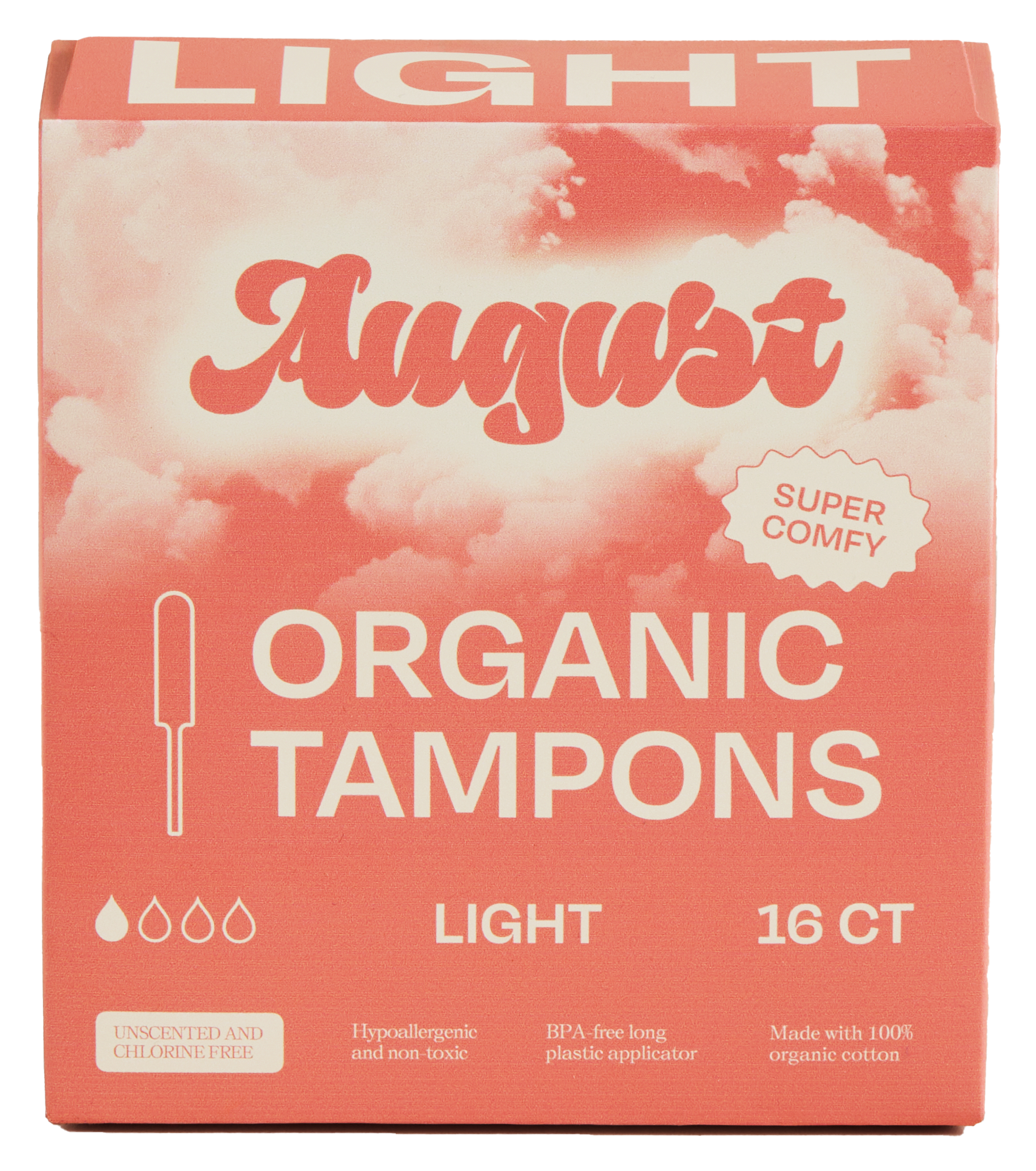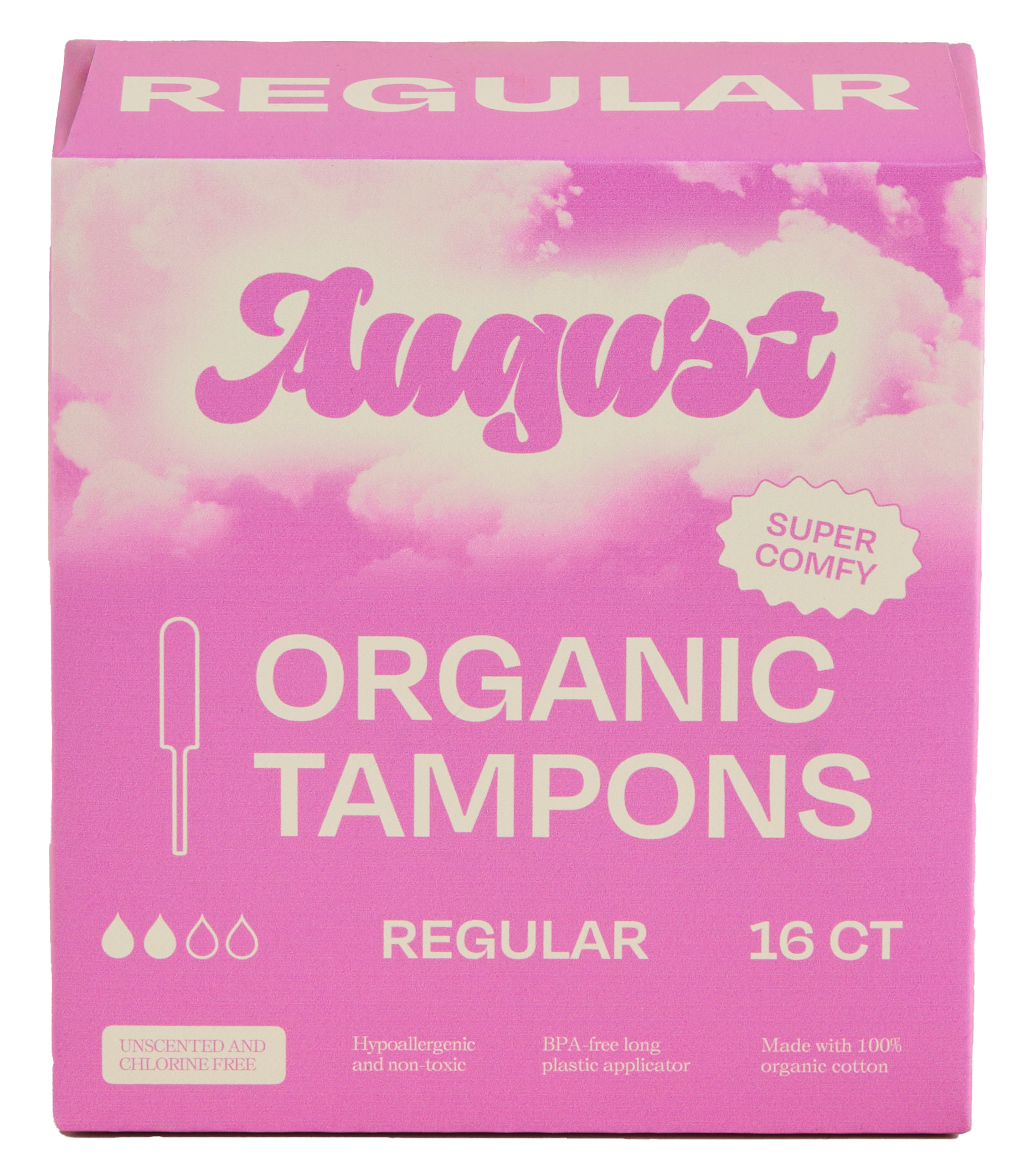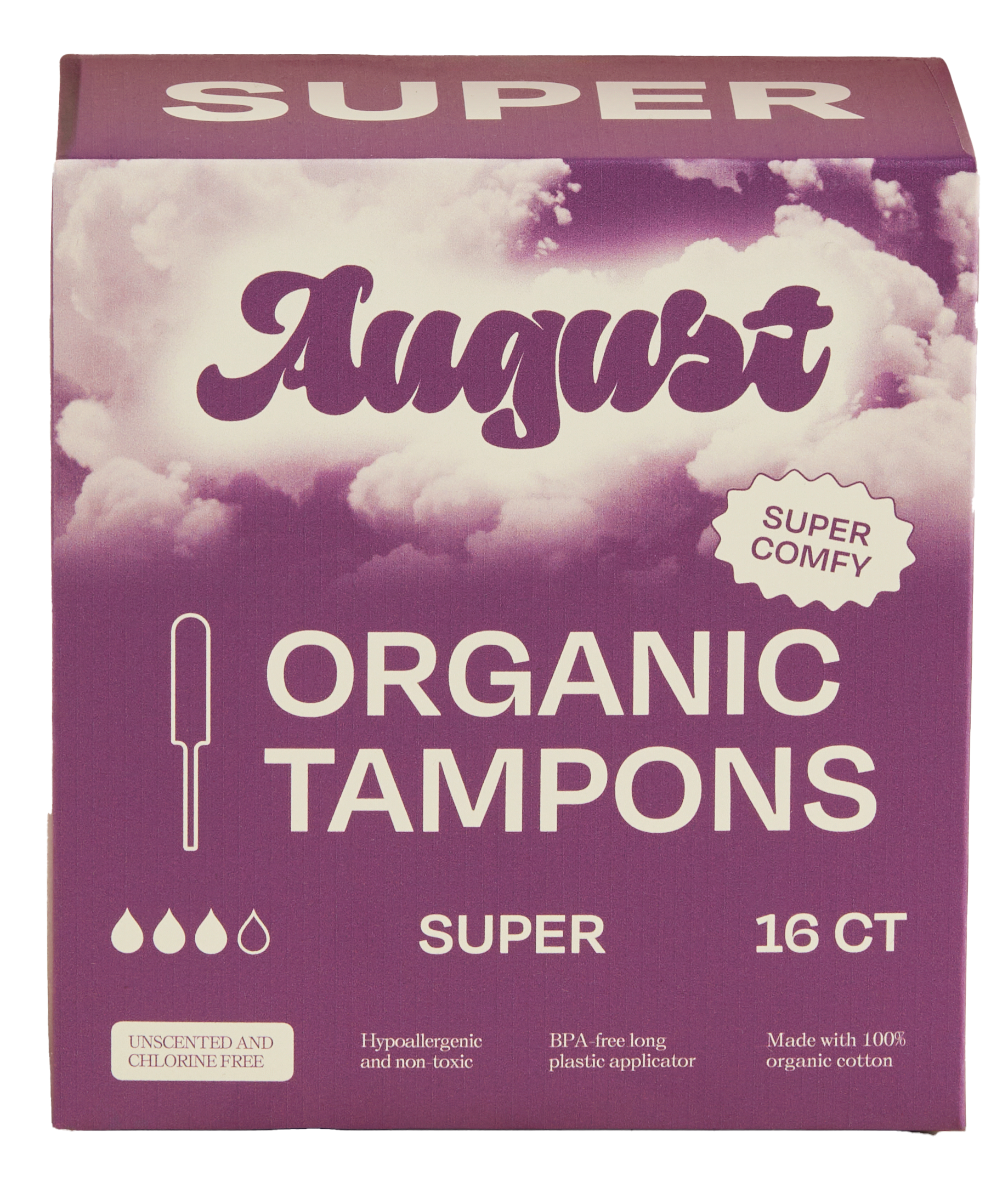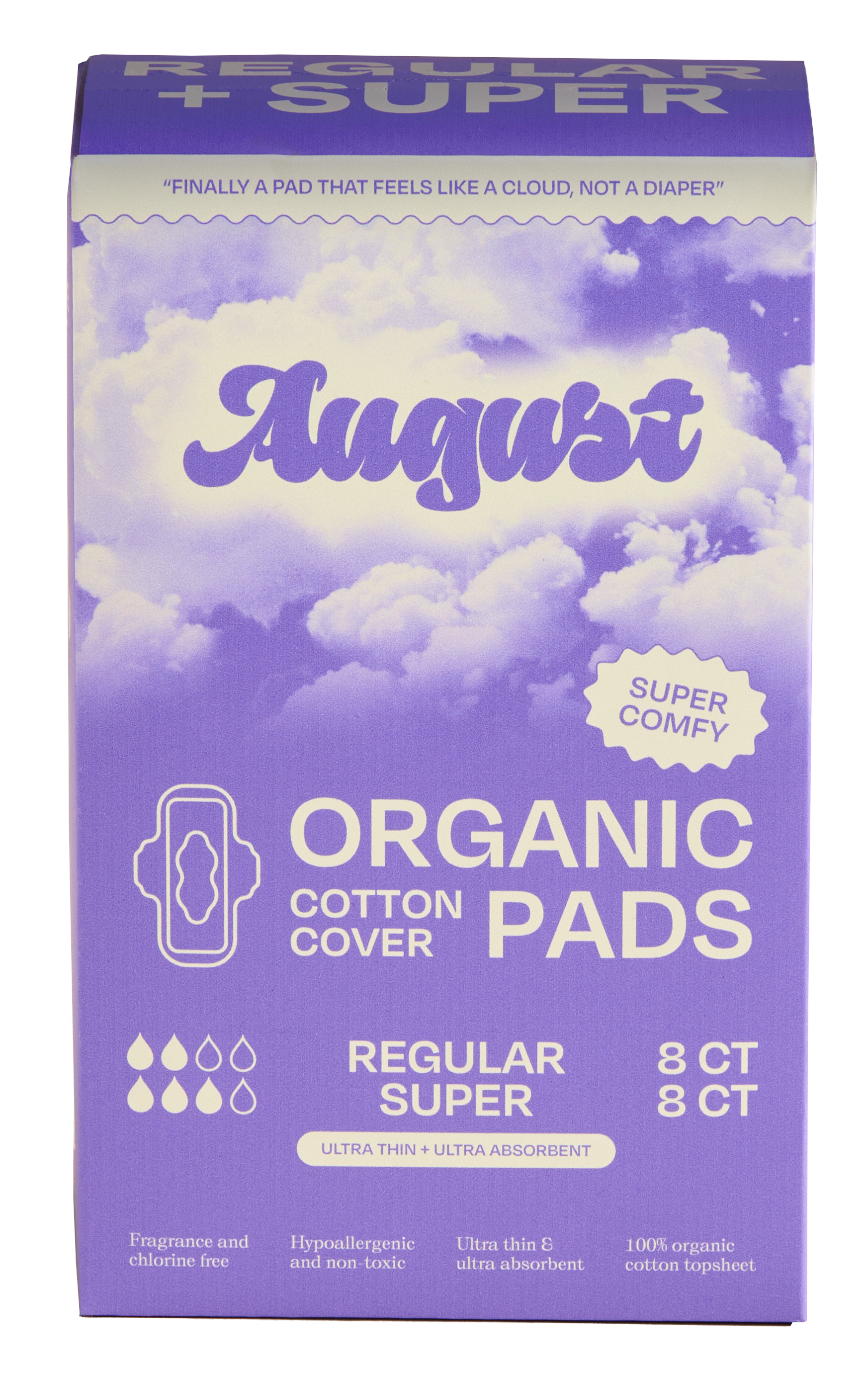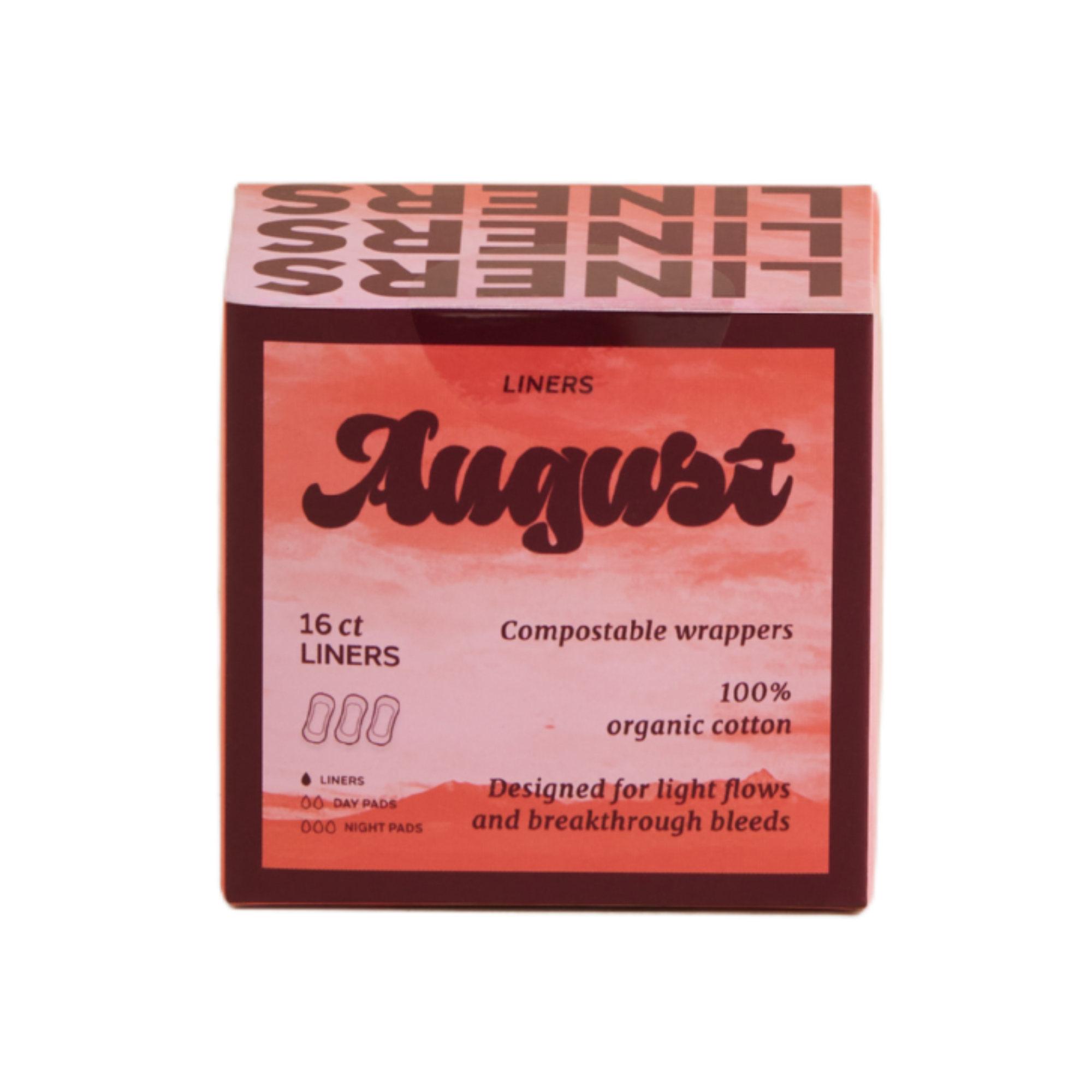Introduction <3

Hi! I’m Julie McClure and I'm the founder & CEO of Hello.Me, a brand that is on a mission to change what it means to be ‘hormonal’ and to destigmatize and open up the conversations around your hormones! At Hello.Me, we help people take back control of their hormones through science-backed supplement products that get your body filled with all of the nutrients you need to keep your system humming and you firing on all cylinders (aka looking and feeling your best!). I have personally been through ‘hormonal hell’ (aka dealt with hormone imbalance symptoms!) more than a few times in my life and having to overcome these pain points that affected my daily life became the springboard for my mission to help others - so you don’t have to suffer like I did. I love creating products that I know change people’s lives and empowering individuals with the information that they need to take back control of their health & beauty… all things I needed when I was in my 20s & 30s! So, let’s dive in and chat about our hormones!
Hormone Health 101

Hormones are chemical messengers that tell the body what to do, when to do it, and how long to do it for. Hormones control everything (literally everything). They control mood, skin health, acne, digestion, energy levels, body temperature, and last but certainly not least… periods!
As hormones control so much throughout your life, it’s empowering to understand what is going on in your body. It’s especially helpful to understand the signs and symptoms when there is a hormonal imbalance going on.
Let’s break down what happens during the menstrual cycle, what hormones are involved, and what you can do to achieve the bliss of hormonal balance! Despite what you may have heard or experienced yourself, it is possible to feel like the best version of yourself all month long.
Comprehensive education around menstrual cycles is severely lacking, and for those of us who are new to the conversation: what are hormones and what do they have to do with my period?

Hormones are your body’s chemical messengers that control virtually every aspect of how your body functions and feels. Having balanced hormones are essential to your health, wellness, and having a regular menstrual cycle! Hormones are a way for your brain to connect with your body (and travel via the bloodstream) to give specific messages to your organs and tissues on how to stay in a balanced and harmonious state.
Your reproductive/sex hormones (lutenizing hormone (LH), follicle-stimulating hormone (FSH), estrogen, progesterone and testosterone) are what drive your mestrual cycle and keep it operating on a regular basis.
When hormone levels are in the right amounts you will have a healthy, regular menstrual cycle. When hormones are out of balance, periods can be irregular (long cycles, short cycles, or absent cycles), and you can experience hormonal imbalance symptoms such as acne, weight gain, bloating/feeling like your clothes are too tight, severe cramping, constipation, anxiety, depression, insomnia, and feeling very tired.
What are the main hormones to be aware of when it comes to my period? And what do they do?

The main hormone players in the menstrual cycle include: FSH (follicle-stimulating hormone): promotes the development of follicles (which turn into eggs) LH (luteinizing hormone): triggers ovulation (the window of time where pregnancy is possible) Estrogen: promotes development of follicles and prepares the uterus for fertilization (which is an optimal environment for pregnancy to occur) Progesterone: prepares uterus for fertilization Testosterone: supports the role of estrogen in the development of follicles
One of the most important takeaways about the hormones that are involved in the menstrual cycle is that they rise and fall at different times throughout the month, which impact mood, energy, digestion, and skin. Changes in hormone levels are why many people feel exhausted and experience bloating and breakouts before their period, and why most people feel a rise in energy half way through their cycle (which is about 7 days after bleeding has stopped).
Let’s break down the different phase of the cycle to understand why you’re feeling the way that you are (or experiencing certain symptoms) at different parts of the cycle.
How do our hormone levels change throughout our cycle?
Our cycle is divided into two phases:
The follicular phase (the first half of the cycle): First day of bleeding = day 1 of the entire menstrual cycle. This phase lasts for about 14 days. FSH and LH are high, and estrogen levels rise. This phase grows the follicles (“eggs”). The eggs contain estrogen, which tells the body to prepare for pregnancy. Although many eggs are produced, only one matures enough to be released at ovulation.
Ovulation: this typically occurs around day 14 of the cycle. High estrogen levels signal the body to increase LH to trigger ovulation, which is when the mature egg is released from the ovaries and makes its way to the uterus.
The luteal phase (second half of the cycle): Ovulation is the event that marks the change from the follicular to luteal phase. After the egg leaves the ovary there are two things that can happen: If pregnancy does not occur, the egg turns into something called the corpus luteum, which releases the hormones estrogen and progesterone during the second half of the cycle. It eventually breaks down, which signals another change in hormone levels and the whole process starts again! If pregnancy does occur, there will be a fertilized embryo, Progesterone dominates this phase of the cycle, although estrogen remains high. At the end of the luteal phase, estrogen and progesterone drop, causing FSH and LH to rise, restarting the cycle.
Where are the hormones, related to my period, produced in my body?

FSH and LH are produced in the brain.
Estrogen is mainly produced in the ovaries but is also produced by the adrenal glands and fat cells in small amounts.
Progesterone is mainly produced in the ovaries from the corpus luteum (this is the ruptured follicle post-ovulation). It is also produced in small amounts in the adrenals.
Testosterone (in females) is produced in small amounts in the ovaries, adrenal glands and fat cells.
What are some symptoms to watch out for that tell me I should pay attention to my hormones?
It is normal for menstrual cycles to be irregular for the first few years of having a period, but your cycle should normalize by the late teen years. With menstruation, a regular cycle is a good sign that your hormones are in check.
A regular cycle ranges from 21 to 35 days, with 2-7 days of flow/bleeding. PMS symptoms, such as bloating, cramping, mood swings and breast tenderness should be mild, if present at all.
Signs of a hormonal imbalance or that something could be wrong include: A cycle that is irregular (the length constantly changes), absent, shorter than 21 days or longer than 35 days. Moderate to severe symptoms associated with periods, such as bloating, cramping, mood swings, and breast tenderness. Heavy bleeding (e.g. changing menstrual products every 2 hours or less) or prolonged bleeding (more than 7 days). Absence of ovulation (harder to catch, but this can include a lack of fertile cervical mucus mid-cycle–the sticky, egg-white consistency of mucus that typically appears for 5-6 days mid-cycle). This happens around day 14 (give or take a few days).
Do hormone levels affect the length or heaviness of a period?
Yes! Short menstrual cycles (less than 21 days) are often caused by low progesterone.
Long menstrual cycles (over 35 days) are commonly caused by a condition called PCOS (poly-cystic ovarian syndrome). This condition has increased androgens (“male” sex hormones).
Heavy periods can be due to high estrogen levels.
Are hormone imbalances related to pain like period cramps? What about endometriosis?

There are a few factors that contribute to pain like period cramps: change in hormone levels that occur after ovulation, pro-inflammatory foods and chemicals, and nutrient deficiencies.
Endometriosis is a menstrual disorder where the lining of the uterus grows outside of this structure. It causes incredibly painful and heavy periods. Estrogen levels are normally high in this condition.
What are some of the hormone imbalances menstruators might experience? Advice on how to tackle this?
Here are the most common hormone imbalances menstruators might experience :
Hypothyroidism (also known as “under-active” or “low” thyroid function). Symptoms include: decreased energy, bloating, constipation, dry skin, brittle hair and nails, depressed mood and weight gain. Having hypothyroidism for a long time without treatment can eventually shift your mood from depression to anxiety with fatigue, leaving you feeling tired but wired.
Advice: speak with a doctor to get your thyroid levels tested and see if medical help is necessary. Lifestyle changes such as a balanced, whole-foods diet, regular exercise, 7-8 hours of sleep, and reducing stress can also help support your thyroid. Specific nutrients like selenium, zinc and iodine (which are all found in Top Up Tonic) are essential for proper thyroid function.
PCOS Symptoms include: a lack of ovulation, long menstrual cycles (over 35 days), weight gain/difficulty losing weight, acne and unwanted hair growth. In PCOS we typically see elevated androgens (the “male” sex hormoens) and an insulin intolerance.
Advice: PCOS is not curable, but it is absolutely manageable. Regular exercise and a whole foods diet with lots of whole grain, fiber, protein, healthy fats and veggies with limited processed carbs and sugar can help manage symptoms. There are also specific supplements and nutrients (such as myo-inositol and n-acetyl cysteine) that can help with PCOS.
PMS (premenstrual syndrome) Symptoms include: Tension or anxiety Depressed mood Crying spells Mood swings and irritability or anger Appetite changes and food cravings Trouble falling asleep (insomnia) Social withdrawal Poor concentration Change in libido Joint or muscle pain Headache Fatigue Weight gain related to fluid retention Abdominal bloating Breast tenderness Acne flare-ups Constipation or diarrhea
Advice: Focus on eating a variety of whole foods (especially fruits and vegetables), minimize sugar intake and processed foods, drink 1.5-2L of water per day, and move your body for at least 20 minutes a day. It’s also helpful to talk to your peers, family or trusted healthcare practitioner about what you’re experiencing. You are not alone in struggling with periods or PMS! Our product, Top Up Tonic, is clinically formulated with 18 key nutrients, antioxidants, and probiotics that specifically combat PMS and assist in feeling that hormonal balance bliss.
What does it mean to “balance your hormones” and why should I care about it?
Balanced hormones = steady mood, sky high energy levels and clear skin. When your hormonal systems are working well, you feel like the best version of yourself!
When hormonal systems get off-kilter, a wide variety of undesirable symptoms can be felt emotionally, physically, and mentally. For example, increased sensitivity to fluctuating hormones before and during your period can lead to symptoms of PMS -- including cramping, bloating, diarrhea, migraines, irritability, acne, and mood swings, just to name a few!
Hormone imbalances are notoriously hard to detect, correctly diagnose, and treat. What advice do you have for someone that suspects they may have a hormone imbalance to get the care they need?
If you feel like your healthcare practitioner is not sufficiently addressing your concerns, getting a second opinion is always a good idea. Seeking out a specialist, such as an OB/GYN or an endocrinologist (a doctor that specializes in hormones) is recommended if you have access to them. Naturopathic Doctors are also excellent resources to correctly diagnose and treat hormone imbalances.
Finding a local or online advocacy group is also a great idea to find support in others, learn how to advocate for yourself, and hear others’ stories.
If you feel like you’re just being offered band-aid solutions, find a health-care practitioner that listens to you and treats the underlying cause.
What are some ways menstruators can balance their hormones?
If you suspect that something isn’t right with your hormones, it’s always a good idea to see a healthcare practitioner to correctly identify what is going on.
Additionally, there a variety of lifestyle practices you can incorporate to balance your hormones:
Diet Eating a nutritionally-dense, anti-inflammatory, whole foods diet can help PMS symptoms. Think lots of fruits and veggies, healthy fats, lean proteins and whole grains. Also remember to eat sufficient calories as undereating can cause you to lose your period! It’s also important to drink 1-2L/water per day to decrease bloating and improve digestion.
Sleep Proper sleep is essential to regulate the stress hormone cortisol. Cortisol has been shown to affect your period by causing it to be late or even missed. Aim for 7-8 hours of sleep per night. Creating a nighttime ritual is a great way to improve your sleep. Some techniques include: Set a sleep time and waking time and stick to them everyday Avoid using electronics at least one hour before bed and keep them outside of the bedroom overnight Create a wind-down routine that you use every night Take an epsom salt bath before bed (this also helps to relieve cramping and helps muscles relax)
Movement Exercise can help manage symptoms of PMS and PCOS. However, too much exercise can negatively impact your cycle. Try to have a balanced exercise routine with a mix of light and moderate to vigorous exercise. During your period, focus on light forms of exercise, like yoga, stretching or walking.
Stress Ever had a particularly stressful month and then notice your cycle was off? This isn’t a coincidence, as it has been proven that stress can cause an irregular menstrual cycle. Stress-reducing techniques such as practicing mindfulness through yoga, meditation, journaling, getting into nature, etc. can help you reduce your stress hormone levels and keep your cycle balanced!
Correct Nutrient Deficiencies A variety of nutrient deficiencies are related to hormonal imbalance and PMS. Top Up Tonic is an easy way to ensure you’re getting all the nutrients you need for hormonal balance. If you’re on birth control this is especially important as birth control is known to deplete many key nutrients that play a role in mood, energy, digestion and skin.
Walk us through each treatment plan on your page, and how people can correctly identify which plan is the right for them?

Top Up Tonic is a clinically formulated supplement for women who are on hormonal birth control (or who are just looking for hormonal balance) to give you exactly what your body needs. Birth control depletes the body of key nutrients, antioxidants, and probiotics. Therefore, Top Up Tonic replenishes all the key nutrients and antioxidants lost and also provides long-term preventative benefits to combat the risk factors that occur with oral contraceptives. It’s also really helpful for supporting mood and energy levels through a variety of the ingredients such as B complex, Coenzyme Q10, and thyroid supporting nutrients (zinc, selenium + iodine).
Key ingredients in Top Up Tonic: Magnesium and B6: reduce premenstrual anxiety, depression, bloating, and cramping. Vitamin B1: relieves cramping, mental and physical symptoms of PMS. Zinc: improves psychological and psychomotor symptoms of PMS. People with PMS tend to have lower zinc levels. Vitamins E and C combat inflammation. B vitamins, CoQ10, and Iodine help to improve the physical symptoms of PMS AND balance mood.
Hydrophoria helps improve your gut health which also makes it great for the skin. It’s great to include in your daily routine if you experience bloating, digestive issues like constipation, etc.
Ingredients like collagen, vitamin C, snow mushroom and resveratrol can protect the skin from damage, and improve hydration, firmness and elasticity.
Probiotics and collagen improve gut health, which can help with digestion and reduce gut-related symptoms (like irregular bowel movements and bloating). Research into the gut-skin connection has also revealed that treating the gut= treating the skin!
Resveratrol, zinc and vitamin C help support your hormones, so you can feel your best.
Inner Charge was formulated to reduce inflammation and achieve hormonal balance to improve your mood.
Omega 3 fatty acids and GLA are the key ingredients that have been shown to reduce inflammation, improve mood and skin.
Coenzyme Q10 and antioxidants astaxanthin, zeaxanthin and lutein protect skin from damage and help with fine lines.
Vitamin D is important in regulating mood and reducing inflammation.
Because hormones are essentially just messengers in our body, you can start to see why we feel so crappy when our hormones are out of balance! Unbalanced hormones = mixed signals = unwanted symptoms and not feeling like yourself.
Your hormones control so much. Now you can control them.
Find all the products listed here:







